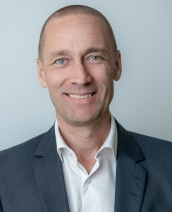Petter Kilefors
Managing Partner
Head of Arthur D. Little Nordics
Petter advises private and public organizations with strategy & innovation challenges across sectors.

Areas of Focus
Education

Petter is the Managing Partner of Arthur D. Little in the Nordic region.
Petter is a member of the global Strategy & Organization Practice, globally responsible for Private Equity with industry affiliation to the TIME, Health Care & Life Sciences, and Public Services Practices.
His professional focus is on strategy & organization, advice to private equity and industrial investors pre- and post-transaction (e.g. due diligence, valuation, strategy, change management, post-merger integration), and governance issues faced by corporations, investors, governments and multilateral organizations.
Petter holds a Master’s in Economic Science and Business Administration from the Stockholm School of Economics and the Rotterdam School of Management.

Optimistic global CEOs focus on people and skills in an AI future

Positive in an uncertain world: Confident CEOs reskill companies for AI-driven growth

Embracing uncertainty, driving growth

Time to renew your pilot’s license?

Turning Turmoil to Advantage: How CEOs Are Navigating Change to Drive Growth

When global megatrends run amok

Growth in the new normal

BYE-BYE COMFORT ZONE, WELCOME VUCA

Electric buses

Petter is the Managing Partner of Arthur D. Little in the Nordic region.
Petter is a member of the global Strategy & Organization Practice, globally responsible for Private Equity with industry affiliation to the TIME, Health Care & Life Sciences, and Public Services Practices.
His professional focus is on strategy & organization, advice to private equity and industrial investors pre- and post-transaction (e.g. due diligence, valuation, strategy, change management, post-merger integration), and governance issues faced by corporations, investors, governments and multilateral organizations.
Petter holds a Master’s in Economic Science and Business Administration from the Stockholm School of Economics and the Rotterdam School of Management.

Optimistic global CEOs focus on people and skills in an AI future

Positive in an uncertain world: Confident CEOs reskill companies for AI-driven growth

Embracing uncertainty, driving growth

Time to renew your pilot’s license?

Turning Turmoil to Advantage: How CEOs Are Navigating Change to Drive Growth

When global megatrends run amok

Growth in the new normal

BYE-BYE COMFORT ZONE, WELCOME VUCA

Electric buses
More About Petter
- Stockholm School of EconomicsM.Sc., Economics and Business Administration
- Rotterdam School of ManagementM.Sc. International Business